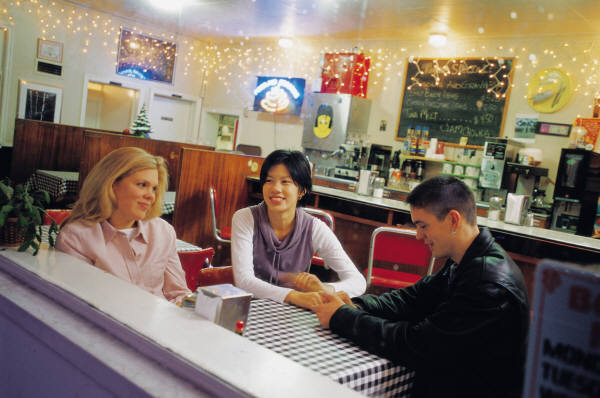In “The Communication Hierarchy,” I recommend face-to-face communication for consensus-seeking, or otherwise important, discussions. If you need a little more motivation to stop typing and start talking, an analysis of 148 studies on the relationship between personal interaction and health showed that those who enjoy active social lives are 50% less likely to die of any cause.[1]
Telephoning and Facebook are better than no interaction at all if, for example, a person is homebound, but in-person socializing is decidedly preferable.
Low social activity presents the same health risks as smoking fifteen cigarettes per day, and even greater risks than obesity or lack of exercise. Moreover, diverse social contacts can lower our resistance to infectious diseases by as much as a factor of four.[2]
Close and supportive friends are believed to be especially helpful in dealing with stress or anxiety (nor surprise there), but they also support heart health and the immune system.
I believe the reason for this is akin to the reason we communicate better in person. We see our friend’s face, hear her voice, feel her handshake or hug, and even sense those hard-to-define vibes that not even Skype can provide. We feel her presence with all our senses.
For your October resolution of the month, try improving your social circle by choosing one of the following:
- If you usually eat lunch at your desk, try to join friendly coworkers a few times a week.
- If you stay in touch with friends mostly by email, phone or social media, resolve to see at least one friend per week in person.
- If your social life is restricted to the same two or three people, periodically reach out to other acquaintances you don’t see as often.
- If you see plenty of people, but they all have a lot in common, cultivate greater diversity. If you and your friends are all musicians, strike up a conversation with a scientist. If they’re all members of your church, seek out someone of a different faith. Reach out to someone older or younger than you are, someone who hails from a different part of the country, or someone with a different educational level or focus.
With a diverse array of social contacts, you will not only improve your health, you will find opportunities to practice and hone your communication skills. Even better, you’ll have fun in the process.

